The Wagadu Chronicles is "Animal Crossing meets Dungeons and Dragons in an African sauce"
Prepare for an Afro-fantasy sandbox MMORPG steeped in lore that emphasizes role-play
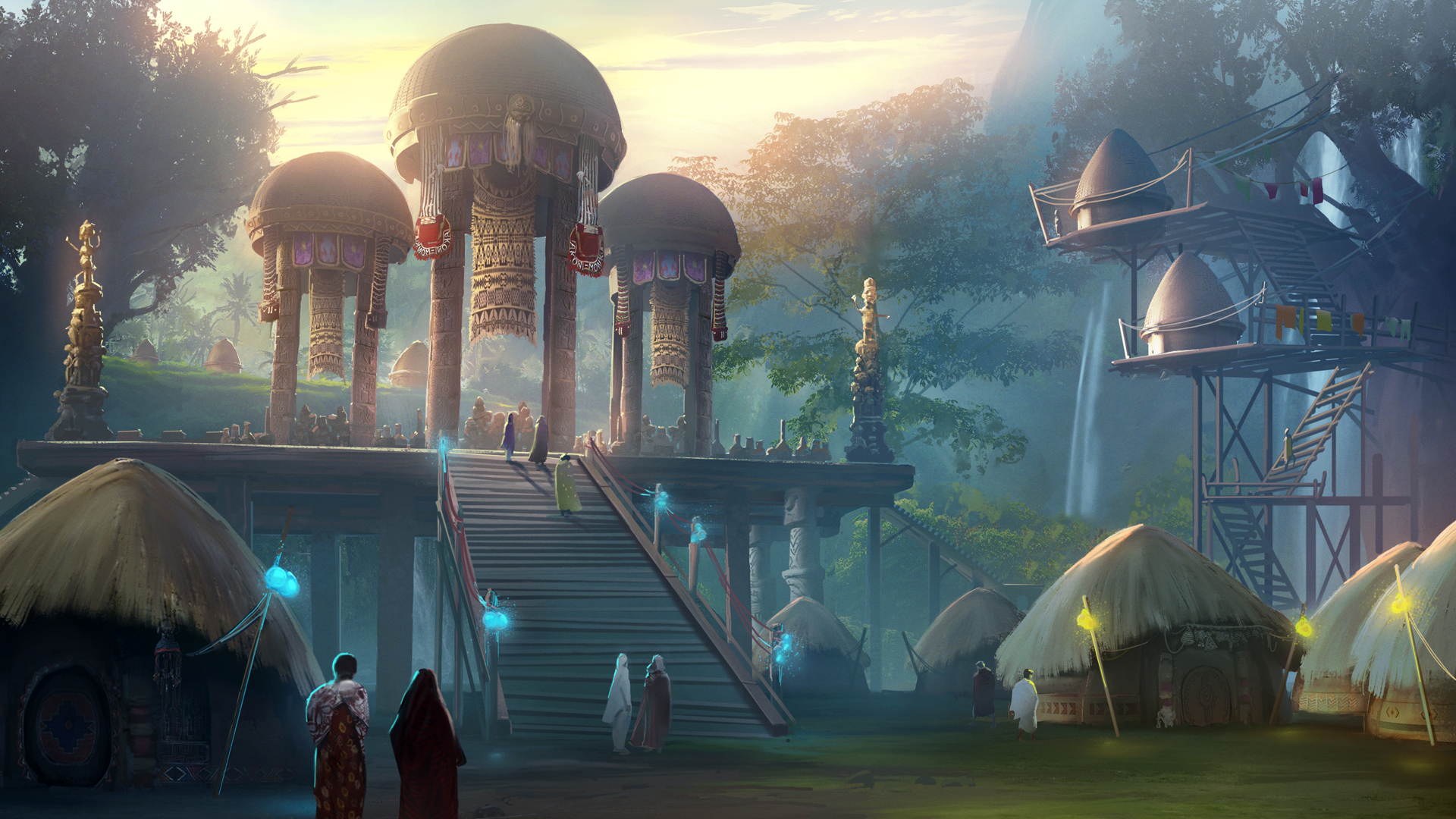
The Wagadu Chronicles is an Afro-fantasy MMORPG that can also be played as a table-top game. Lead designer Allan Cudici describes the game as "Animal Crossing meets Dungeons and Dragons in an African sauce." It's a space where players can roleplay based on their character's background and the lore of it's fictional location Wagadu. Online, players can choose to be anything from fishers to hunters, magicians to traders, and roleplay in a way that best benefits their home villages. Those who want to experience Wagadu as a tabletop game can use a guide and rule book also created by Wagadu's creators, Twin Drums.
A wider world
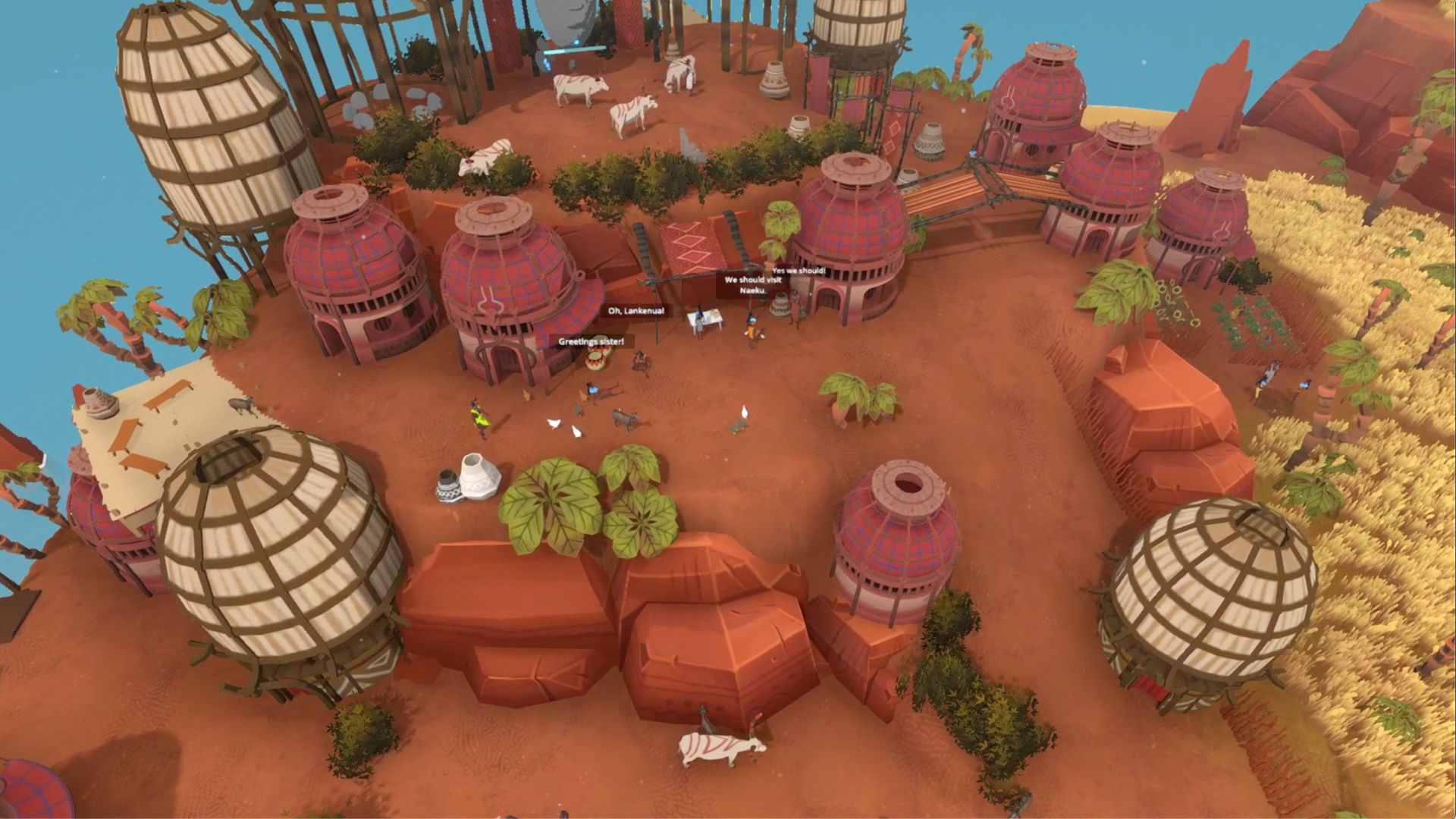
Inspired by many cultures and traditions from Africa, The Wagadu Chronicles references from places like South Africa, Ghana, Nigeria, Mali, Congo, Kenya and other countries – building character types, clothing and settings from across its diaspora. As an afro-fantasy game, it helps diversify the field of MMOs, which are often situated in the same types of sci-fantasy contexts inspired by western European and east Asian mythology. "I describe it sometimes as a color palette," explains Twin Drums' founder and designer Allan Cudicio. "Sticking to only one color for a painting is boring. If, as an industry, if we only speak to euro-fantasy and maybe a bit of East Asian fantasy, and exclude the rest of the world – it's a pity."
It features much of the geology found in the African continent; a mix of savannas, deserts, rainforests, swamps and mountains – something the developers took a trip to Kenya to research, consulting African elders and African biologists to make the fantasy world's lore and biome more authentic. When creating Wagadu's music, they mixed a "combination of African traditional instruments and with western RPG tunes." For Cudicio, his game and its African origins comes from a place of love. He argues that tapping into the wealth of stories, references, and cultures from around the world will expand the gaming universe and inspire more people to pick up a controller.
Though I appreciate how games like The Wagadu Chronicles make the MMORPG space more diverse and inclusive, I'm also excited for how the game's mechanics promote actual roleplay – games that are described as "roleplay" often have mechanics that facilitate an achievement hungry, 'hack-slash-heal' grind that makes most aspects of the game just another competition. Tactics and strategy can be fun, but too much of it can nudge a story and lore to the periphery.
The Wagadu Chronicles asks players to truly consider their characters' backstory and treat NPCs like a real part of the game's community and story. For example, one interesting feature is how your actions influence certain NPCs interactions. Ancestors and spirits remember what you do, which can influence what types of rewards you receive, or quests you are given. In this way, players are encouraged to consider more balanced gameplay than other MMORPGs.
Spiritual guidance
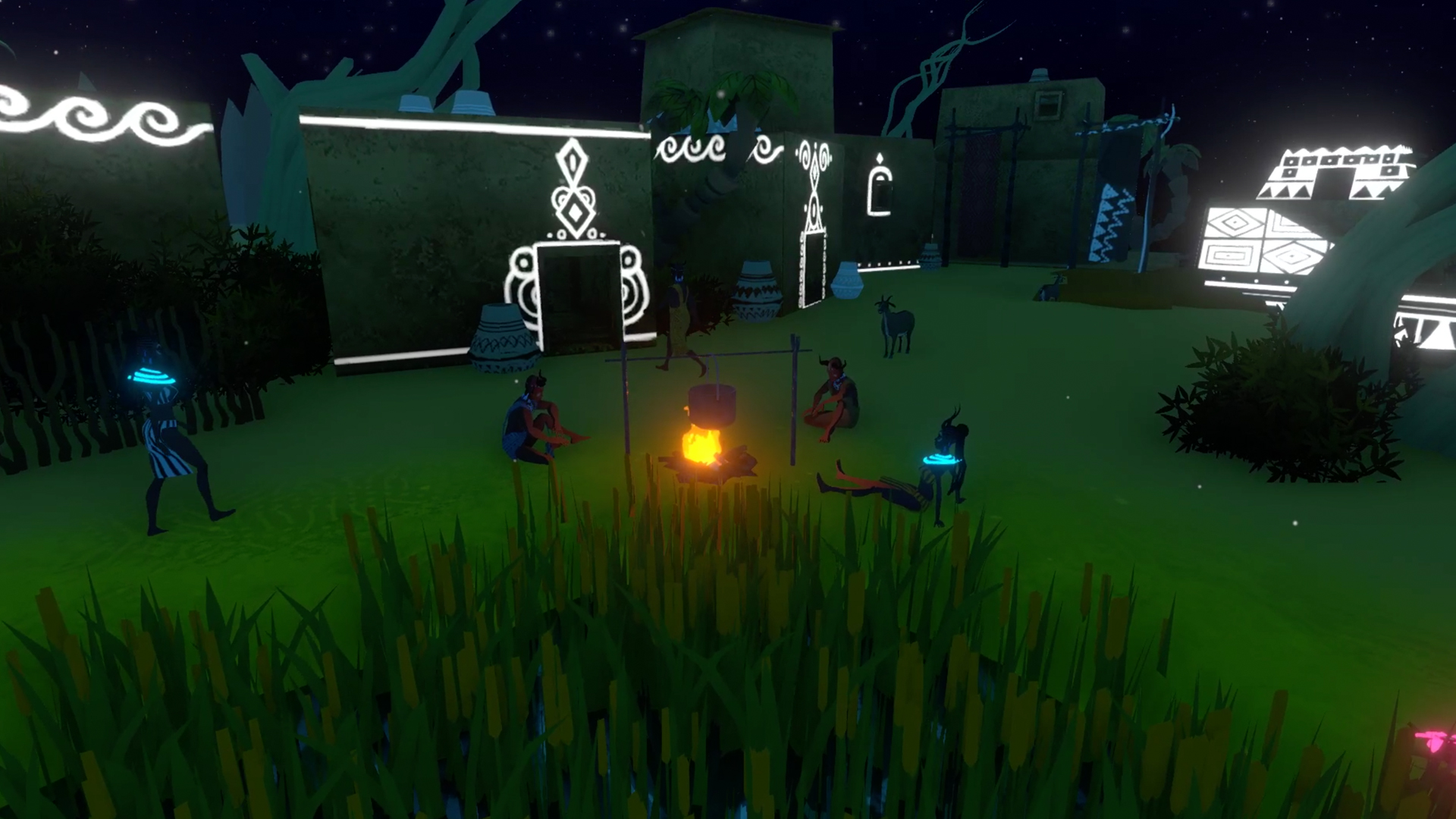
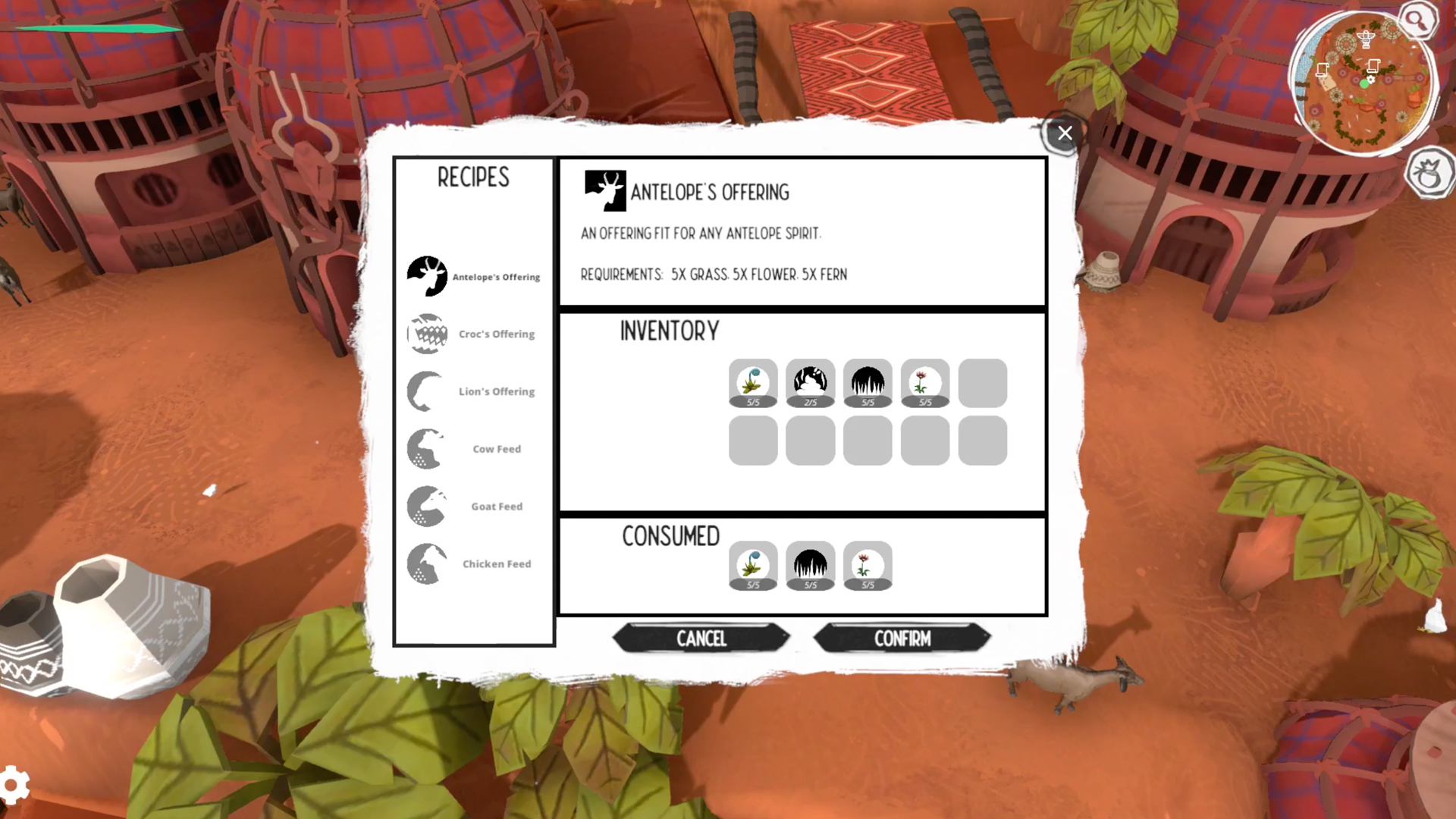
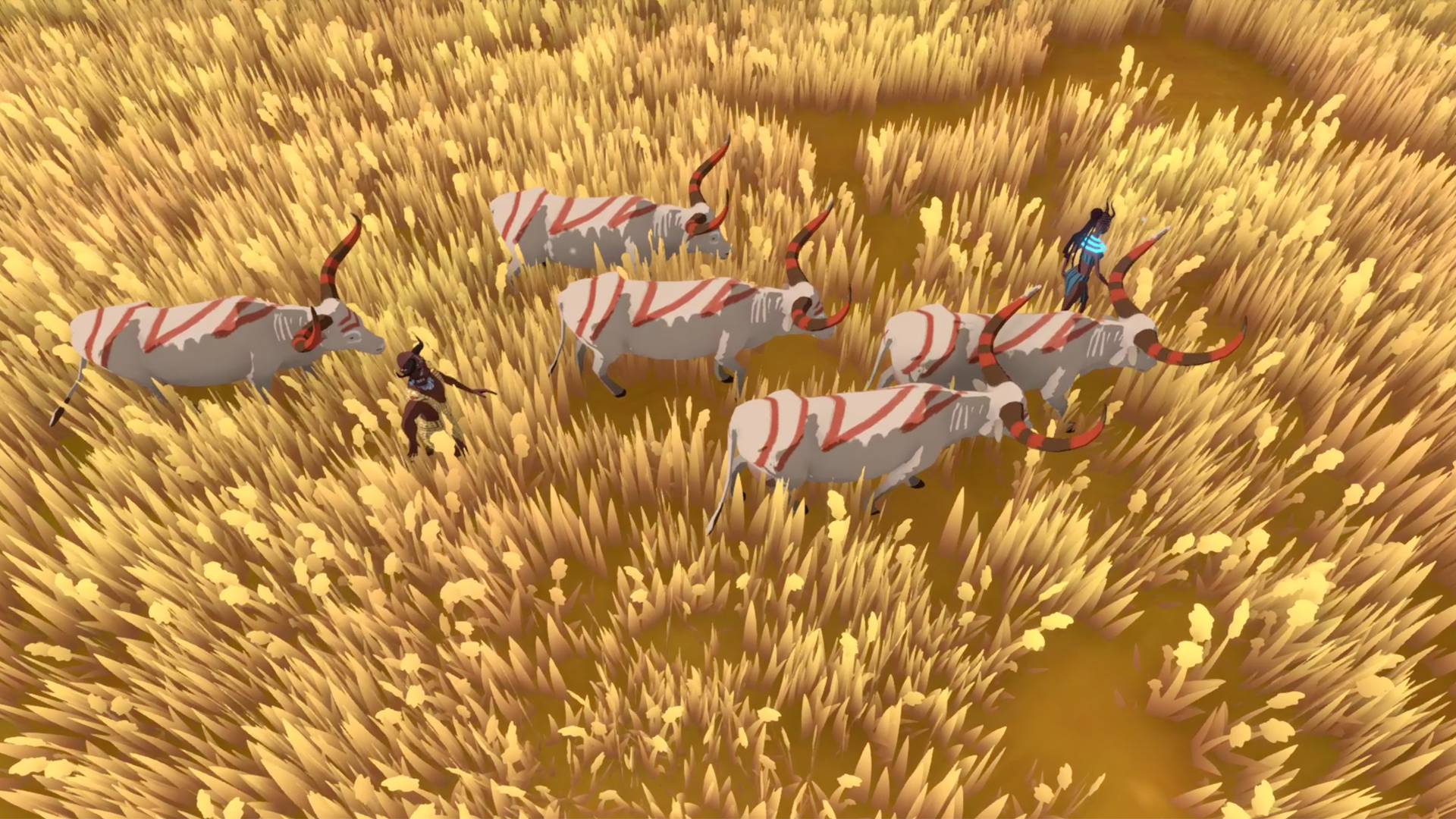
"If you, for instance, hunt a lot of zebras, you are probably going to start on the wrong foot with a certain type of spirit," says Cudicio. "But in other cases, if it is an ancestor of your people it is already, by default, a plus. In the best case scenario, they could give you gifts or heal you. If it's really bad, they may even attack you on sight." Characters in Wagadu also have a couple of "hidden background" traits (assigned at random) that are revealed after interacting with spirits. Discovering your hidden backgrounds can spark unexpected advantages or challenges in the gameplay, and add interesting individual twists to each player's experience.
Cudicio said that during the initial idea for the game, he split the map of the continent into subregions and bounded together different traditions, aesthetics, and ideas with fantasy tropes and things he thought players would like. "There's a mix of personal, historical, even market-research," said Cudicio. "I was very open to all types of inputs. And that was where the core of The Wagadu Chronicles was born."
Sign up to the GamesRadar+ Newsletter
Weekly digests, tales from the communities you love, and more
To help process all these ideas Twin Drums has produced a 200-page book of lore for the game – backstory for the different classes of Wagadu, giving history for the African cultures and mythologies that inspired the MMO and tips for different parts of the journey. "The video game part comes first, but there's a spectrum for role-play that the lore helps provide," Cudicio said. "Reading the lore is a support. It isn't something that is required, but it does help." There will be a continuous release of free lore materials on Twin Drum's blog and Discord, which will allow players to master the online game and immerse themselves in tabletop play. The hope is that players will see the lore materials as a compliment to the MMO, and something that will augment the immersive experience.
Community minded
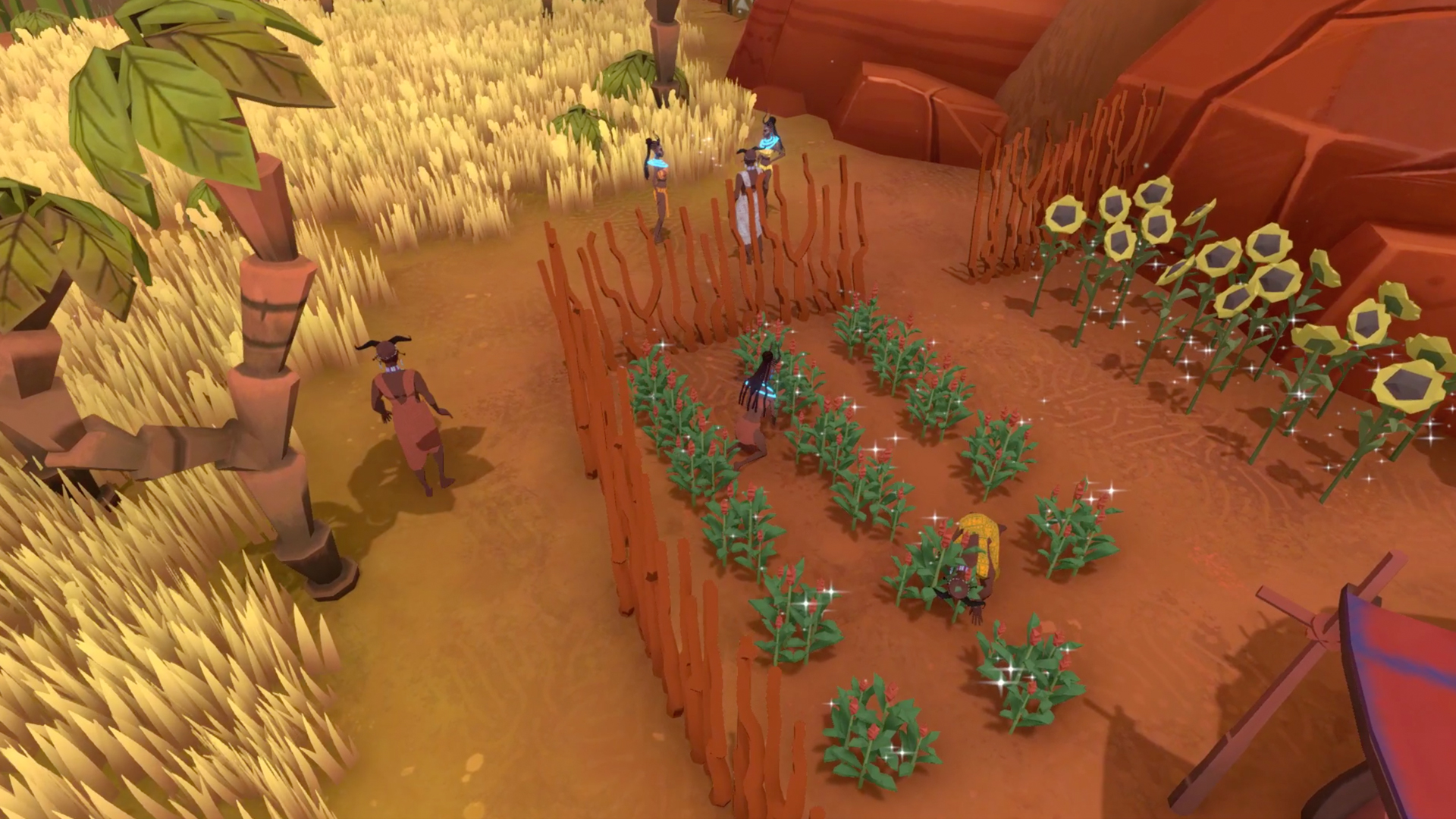
Twin Drums hopes to create a fun, accessible and safe environment where players will be encouraged to stay in role-play on Wagadu servers, and groups of players that engage in interesting and well-thought role-playing will be rewarded. There'll be off-world lobbies for tips and technical support and a number of moderation tools for both the creators and the larger player community to help keep Wagadu safe from harassment and trolling.
Though the game is still in development, Twin Drums is collaborating with League of Legends developer Riot Games to push out its first alpha by the end of 2022. An interest likely helped by the initial Kickstarter interest that raised an amount well past its initial €100,000 goal. The online version of The Wagadu Chronicles is currently targeting a release date at the end of 2021, while the table books could be much arriving sooner – follow The Wagandu Chronicles on Twitter to stay up to date with the latest updates


